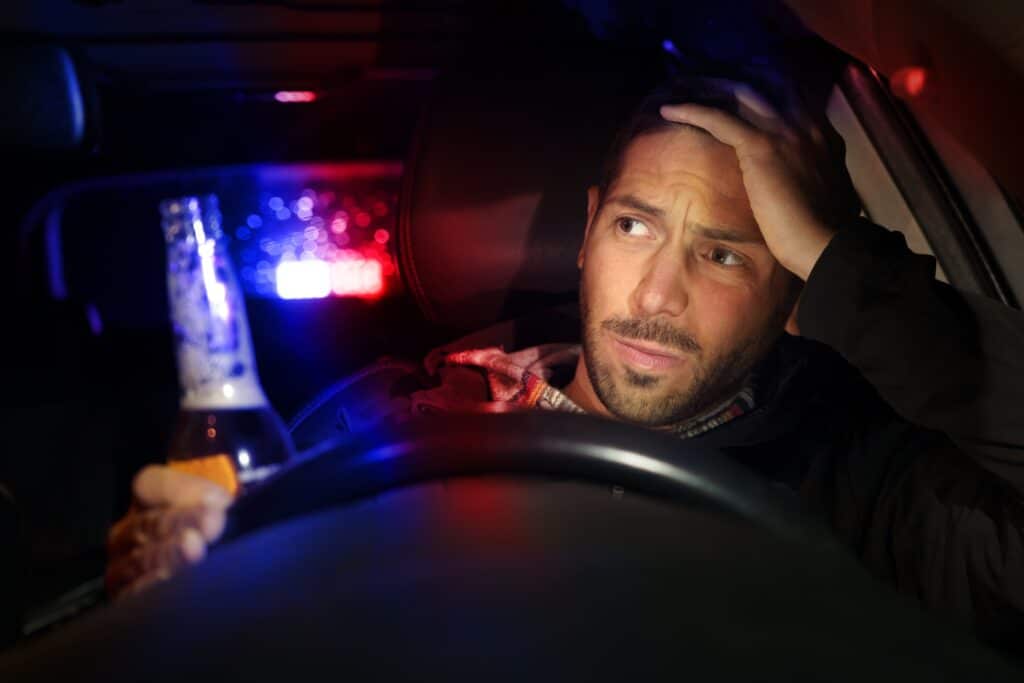Penalties for a DWI conviction can sometimes seem severe, but the good news is that a DWI charge does not always result in a conviction. We’ve found that getting a DWI charge completely dismissed is very rare but not impossible.
In fact, we have compiled statistics that show the chances of a DWI Dismissal compiled by Texas’ state government. The chances of a DWI dismissal in Texas range from 34% to 6.17%, depending on the charge type.
Here is the full breakdown of DWI dismissals in 2024:
| DWI Type | Total cases | % of Cases Dismissed |
| 1st DWI | 30,066 | 34.2% |
| 2nd DWI | 5,902 | 15.2% |
| Felony DWI | 5,766 | 6.17% |
However, it’s worth noting a few things:
- A dismissal does not necessarily mean you’ll face no penalty — sometimes, conditions are attached to a dismissal. Or the DWI will be ‘dismissed’ but replaced with a lesser charge.
- There are also options for deferred adjudication, especially for first offenses. On first DWI charges, approximately 14.5% result in deferred adjudication, on top of the 34% dismissal rate.
- This data only includes the top five counties in Texas — smaller counties are often less likely to dismiss DWIs.
The odds of dismissal will vary based on the circumstances of the case, but having an experienced defense attorney boosts your chances.
Schedule a free case review to get our take on the likelihood of your DWI being dismissed.
READ MORE: DUI vs. DWI
Statistics: Chances of a DWI Dismissal Statewide
Pleading not guilty to a DWI charge in Texas might boost your odds of a dismissal. According to the annual DWI summary from the Texas Department of Public Safety Crime Records Division, about 11% of Texans who plead not guilty ultimately see the charges dismissed and another 4% are released with no charges.
There’s also about a 17% chance of being convicted on a lesser charge. However, it’s difficult to calculate the exact dismissal rate because law enforcement agencies across Texas don’t consistently track this data, and the numbers aren’t broken down by the severity of the offense. Plus, some Texas district attorneys choose to take a tougher stance on DWI and are less willing to dismiss the charges or negotiate reduced sentences – particularly for repeat offenders.
| 2022 | |
| Total number of DWI charges reported | 83,361 |
| Dismissals | 10,021 (11%) |
| Release with no charges | 3,793 (4%) |
This means that if you don’t enter a guilty plea and instead fight your DWI charges, you have a chance of up to 53% of having the charges reduced or dismissed.
Maximum Penalties for DWI Convictions
The maximum penalty will depend on the severity of the charges against you. However, most first and second DWI offenders do not serve jail sentences. Many can attend alcohol awareness classes, qualify for deferred adjudication, or – if the charges are more serious – get probation.
Third offenses or first and second offenses with extenuating circumstances can have more severe penalties, but it’s important to understand that this is the maximum sentence you could get. They are not standard outcomes.
| Offense | Charge | Maximum penalty |
| First offense | Class B misdemeanor | Up to 180 days in jail |
| Second offense | Class A misdemeanor | Up to a year in jail |
| Third and subsequent DWI | Third-degree felony | Two to 10 years in prison |
| Child endangerment | State jail felony | Up to 180 days in jail |
| Intoxication assault | Third-degree felony | Two to 10 years in prison |
| Intoxication manslaughter | Second-degree felony | Two to 20 years in prison |
Felony DWI charges are very serious. It’s important that you contact us as soon as possible after an arrest.
How to Get Your DWI Dismissed
A DWI conviction is not inevitable. We have developed relationships with prosecutors and judges that can help us negotiate the best deal possible.

Don’t Plead Guilty Without Talking to Us First
According to court records, roughly 35% of Texans in the state’s five largest counties pleaded guilty or no contest for a first DWI offense in 2023.
Contact us before you make any decisions. The conviction could remain on your record for life, and we will do whatever we can to prevent long-term damage to your reputation.
We Will Help You Build a Solid Defense
Our team will carefully review the evidence against you and craft a customized defense. If we can’t get the charges dismissed, we will do everything we can to negotiate a reduced sentence or probation.
Issues we will thoroughly investigate include:
- Did police read you your rights before officially questioning you?
- Did the police have reasonable suspicion of intoxication when you were pulled over?
- Did the police have probable cause to pull you over? (For example, someone reporting that you were driving erratically)
- Are there mistakes in the police report? (For example, does the report say you willingly exited the vehicle when you were actually forced out?)
- Were you forced to complete field sobriety tests under questionable circumstances (near traffic, under bright lights, in the dark, etc.)
- We can challenge the accuracy of your blood and breathalyzer tests
- We will review police dashcam footage and audio recordings to ensure that police followed proper procedures and they were accurately documented in the police report.
READ MORE: Are field sobriety tests mandatory in Texas?
DWI Dismissals: A Case Study
At Michael & Associates, we aim to get you a dismissal. We will use every resource available to us to do this.
For example, we noticed some weaknesses in the evidence against one of our clients, who had been pulled over after a 911 call reported speeding and swerving.
The client admitted to driving erratically, saying she was distracted by her phone. She said there was no alcohol or medication in her system. During the traffic stop, police officers searched the vehicle and found what appeared to be two CBD gummies and a possible mushroom.

The client said the CBD was a legal product that a friend gave to her. The client had a steady job, a spouse, three kids, and no criminal record.
It was unclear whether the substances were tested, how the items were found, or whether the client had consented to a vehicle search.
We carefully reviewed the video evidence against our client and made a few additional observations:
- Our client showed no signs of intoxication at the time of arrest
- Our client sounded articulate on recordings
- She looked composed
- She performed well on Standardized Field Sobriety Testing
- No blood or breath tests were completed to screen for intoxication
Upon pointing out the weaknesses in the case against the client, we asked the prosecutor to dismiss the charges. In exchange, the client would complete an alcohol awareness class.
The prosecution accepted the offer, and the case was dismissed.
READ MORE: What you need to know about “no-refusal” weekends in Texas
Possible Reduced Charges for DWI
Dismissal may not always be possible, but we can work to get the charges against you reduced. This process is known as plea bargaining. Some options for lesser charges may include:
- Obstruction of passageway
- Reckless driving (This reduces a DWI felony to a misdemeanor)
- Public intoxication
As you can see, the odds of a DWI dismissal can vary dramatically depending on the circumstances of your case, where you were charged, and the quality of your legal representation. Contact us today for a free assessment of your case, and remember that dismissal isn’t your only option. If we can’t get you a dismissal, we can try to get the charges against you reduced or negotiate for deferred adjudication. Contact us today to set up a free consultation.

Ben has vast experience in defending criminal cases ranging from DWIs to assault, drug possession, and many more. He has countless criminal charges dismissed and pled down. Among many other awards, one of the Top 10 Criminal Defense Attorneys in Texas and winner of Top 40 under 40.
Ben has vast experience in defending criminal cases ranging from DWIs to assault, drug possession, and many more. He has countless criminal charges dismissed and pled down. Among many other awards, one of the Top 10 Criminal Defense Attorneys in Texas and winner of Top 40 under 40.